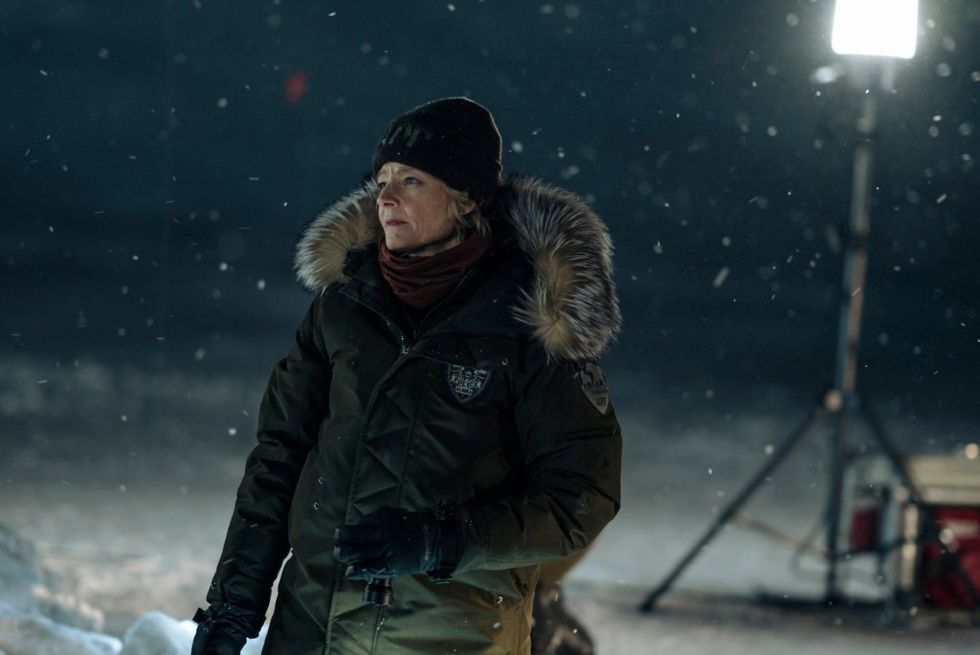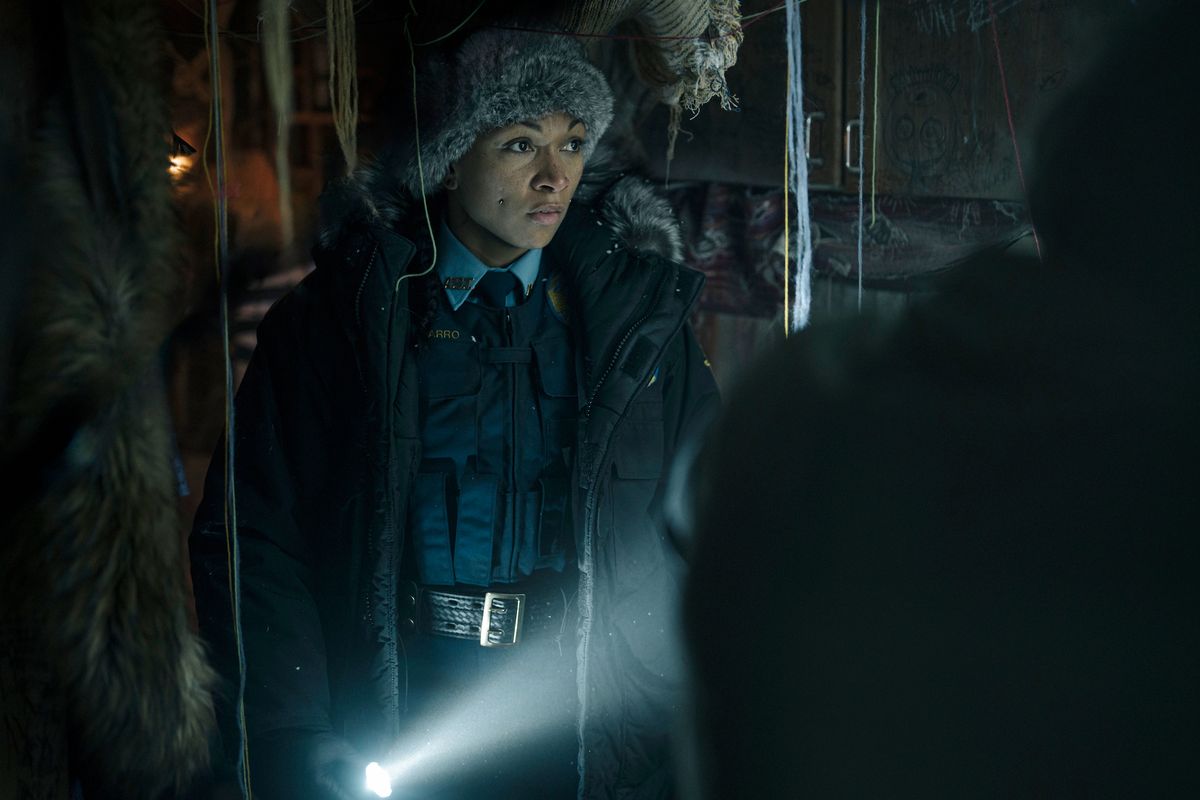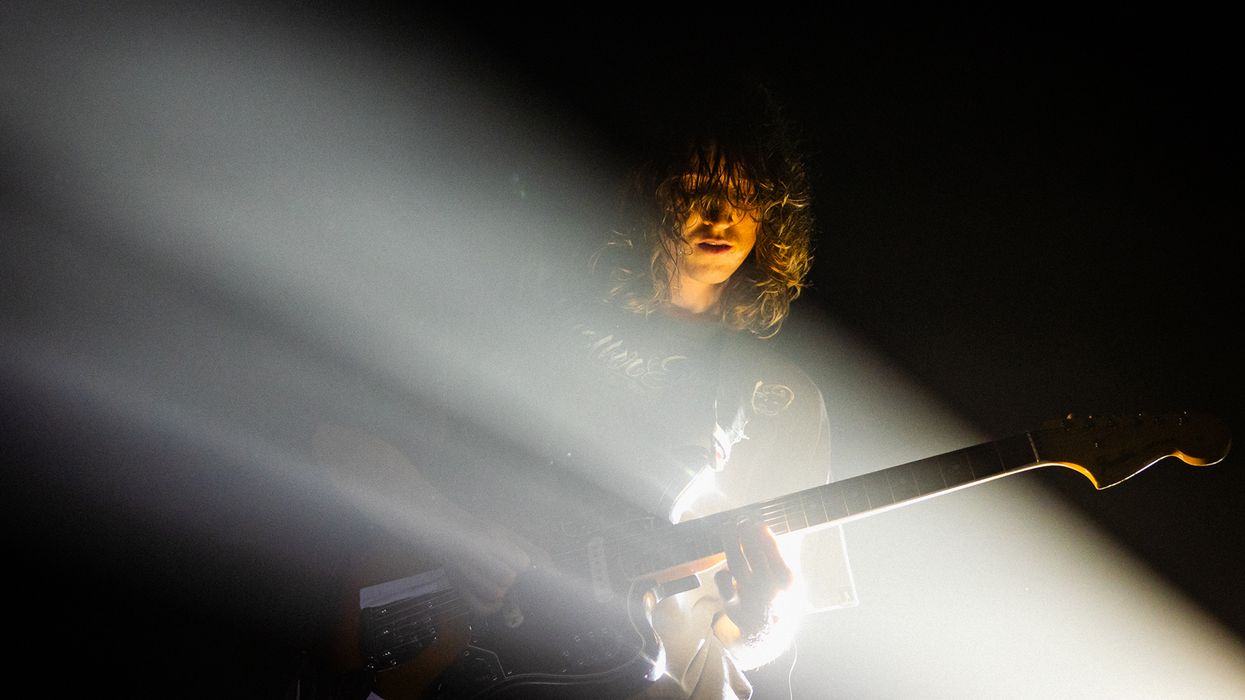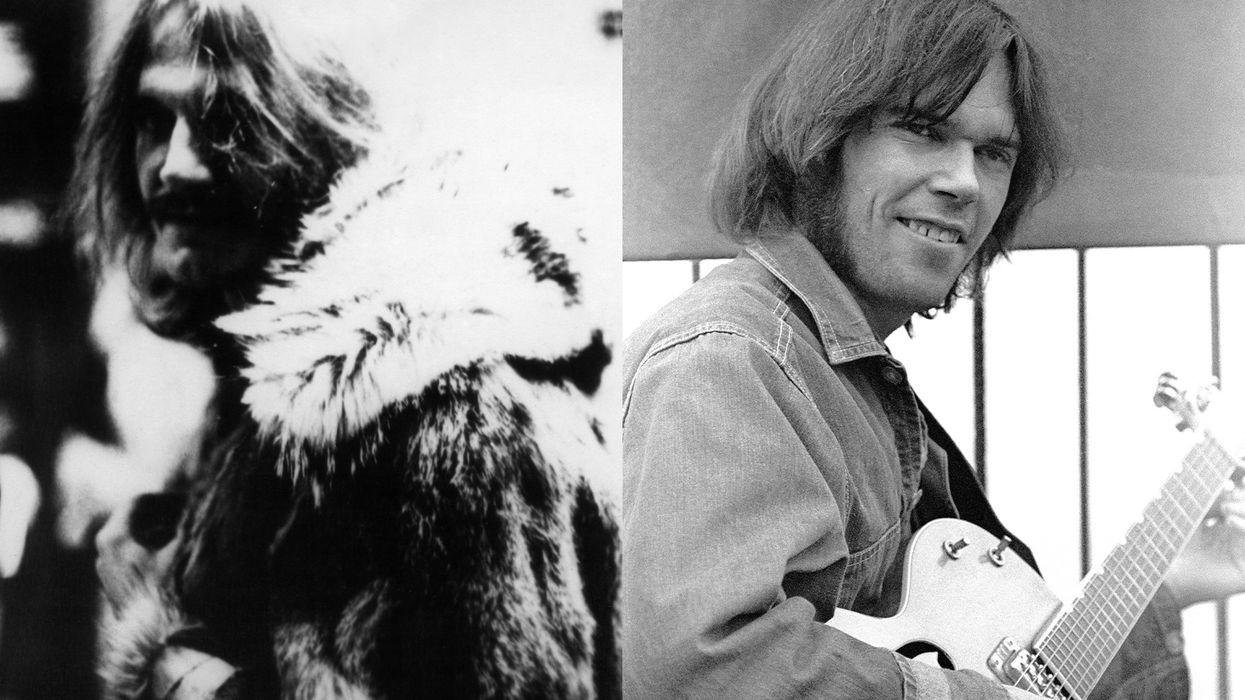This post contains spoilers for this week’s episode of True Detective: Night Country, now available on HBO and Max.
When the first True Detective season concluded 11 years ago, a lot of the finale discourse revolved around the lack of any supernatural elements after the previous episodes had been laced with references to Robert W. Chambers’ horror stories about the King in Yellow. That the killer was an ordinary, if evil, human being disappointed some viewers who had spent weeks theorizing, while True Detective creator Nic Pizzollatto told me he was surprised by this reaction: “I did feel the perception was tilted more toward weird fiction than perhaps it should have been.” Pizzolatto went to that well again a bit in the second season, particularly with a wounded Ray Velcoro chatting with his dead father in a bar where the equally late Conway Twitty was on stage singing “The Rose.” But the bad guys were once again wholly mortal, as was the case in Season Three. The hints of matters otherworldly provided color on the margins of the story, but they were never meant to be taken literally.
With Night Country, Issa López is leaning much harder into the supernatural than Pizzolatto ever did, even more in this second chapter than in last week’s premiere.
Navarro visits Rose to learn more about the idea of her dead husband Travis somehow leading her to the frozen corpses. Rose says, matter-of-factly, that Travis’s ghost has visited her on occasion in the past, but, “The fucker only comes when he wants something.” Later in the conversation, she suggests that “the world is getting old, and Ennis is where the fabric of all things is coming apart at the seams.” Bill, the delivery driver who discovered that the Tsalal scientists had abandoned the station, concurs with the idea of the place being fundamentally abnormal: “This is Ennis, man. Yeah, you see people sometimes.” And Navarro’s sister, Jules, sees and hears things that shouldn’t be possible, like their dead mother calling to her. But weird things keep happening to Navarro, too, like randomly finding a gold cross on the floor of her truck — a cross identical to the one their mother wore when she and Jules were kids.
At the same time, the episode doesn’t abandon reality altogether. Jules’ behavior, and their mother’s, could be ascribed to mental illness rather than some deeper connection to the spirit world. Danvers and Navarro keep coming across an odd swirling pattern in their investigation, and there are cloth figures dangling from the ceiling of the trailer they search near the end of the episode, but both of those could have been made by a regular, if unhinged, person. Perhaps Raymond Clark, the Tsalal scientist who was apparently dating Annie — and who turns out to be the one member of the group not found in that macabre ice sculpture?
The sculpture itself feels unnatural, even before we find out that one of the scientists is somehow still alive in there, and in understandable agony. And the image of the corpses thawing out in the middle of the town ice rink just looks surreal.
But because Elizabeth Danvers is a woman with no interest in, or patience for, matters without logical explanation(*), her parts of the episode are very much happening in the real world. She laments that the entire case is “a shit bowl: no answers, bunch of angry people” — the whole phrase sounding marvelous in the raspy growl that Jodie Foster has developed as she’s gotten older — yet also acts exasperated that her ex-boss, Ted (Christopher Eccleston), has come from Anchorage to take over the case.
(*) This manifests itself most harshly in her response to seeing that Leah has gotten temporary tribal face tattoos. She furiously dismisses Pete’s wife Kayla as a night nurse, and Kayla’s grandmother as a “laundromat grandma,” and seems offended at the very idea of her stepdaughter connecting more deeply with her heritage. It’s by far the least flattering moment for her in an episode full of her looking bad.

Danvers and Ted have bad professional history, as he’s the reason she’s even in Ennis. (He frames it as an opportunity for her to run her own department, while she has always viewed it as a banishment.) But they also have a bad personal history, as Ted is one of the many married men, it seems, that Danvers fools around with. We meet another of those, high school science teacher Bryce, when Danvers interrupts one of his classes to get a better idea of what the scientists were doing up at Tsalal. Other than Pete Prior — whom she has taken under her wing, constantly doing her trademark bit of insisting that he’s not asking the right questions — nobody in town seems to like the abrasive police chief, and it’s hard to blame them(*).
(*) She does get a few vulnerable moments in flashback, as we see her dancing with Leah’s dad, and playing with a little boy — the boy who touched her shoulder in the premiere, no doubt — as “Twist and Shout” plays. (The latter offers some new context as to why she was so eager to turn off the Ferris Bueller parade scene last week.)
Pete’s dedication to his boss and mentor has its downsides. Beyond Danvers making a scene at his house over the tattoos, he gets slapped across the face by Hank for stealing the Annie K file box from his father’s house. Never mind that Hank shouldn’t have had it there in the first place, nor that most of Hank’s attention seems wrapped up in the Russian mail order bride who is so obviously scamming him. Hank’s useless, and Pete is an adult man with a wife and a child. But Pete still comes across as an overgrown kid a lot of the time, so being smacked by his father stings well beyond the physical pain of it.
Developments this week, like the tongue on the Tsalal floor being Annie’s, forces Danvers and Navarro to reluctantly team up again. This means we’re eventually going to find out the full extent of their beef, but it also means that we’re heading for a collision between them, and perhaps within Night Country itself, about how much, if any, of what’s happening in this case has a rational explanation, and how much is just Ennis, man.














 Catering Presented By The Food DudesPhoto by Snapdrg0n
Catering Presented By The Food DudesPhoto by Snapdrg0n Catering Presented By The Food DudesPhoto by Snapdrg0n
Catering Presented By The Food DudesPhoto by Snapdrg0n Catering Presented By The Food DudesPhoto by Snapdrg0n
Catering Presented By The Food DudesPhoto by Snapdrg0n
 Photographer: Raphaëlle Sohier / Executive production: Elizabeth Crisante & Amanda Dorenberg / Design: Alex Filipas / Post-production: Bryan Egan/ Headpiece: Tristan Réhel
Photographer: Raphaëlle Sohier / Executive production: Elizabeth Crisante & Amanda Dorenberg / Design: Alex Filipas / Post-production: Bryan Egan/ Headpiece: Tristan Réhel Photo: Raphaëlle Sohier
Photo: Raphaëlle Sohier Photo: Raphaëlle Sohier/ Photo production: Bryan Egan/ Blazer:
Photo: Raphaëlle Sohier/ Photo production: Bryan Egan/ Blazer:  Photo: Raphaëlle Sohier/ Blazer: Vivienne Westwood/ Skirt :
Photo: Raphaëlle Sohier/ Blazer: Vivienne Westwood/ Skirt : 

